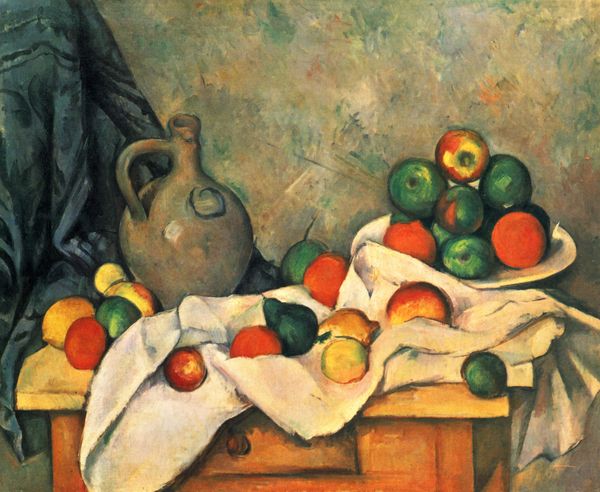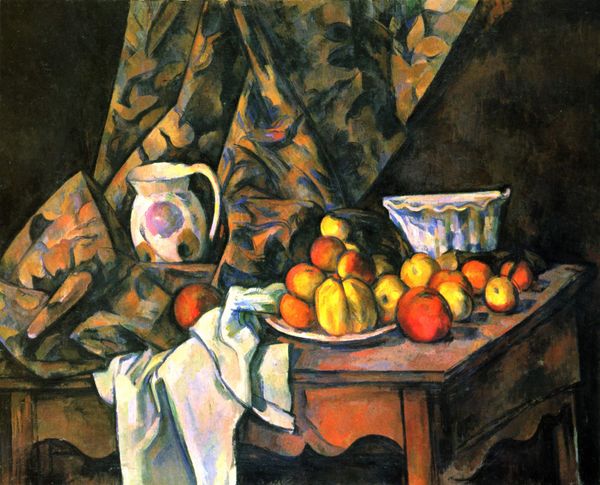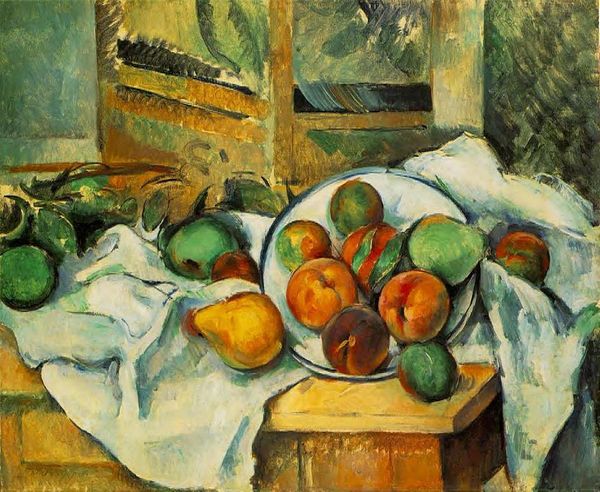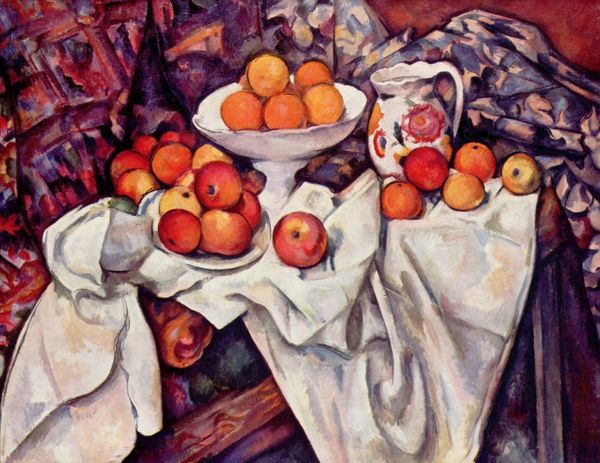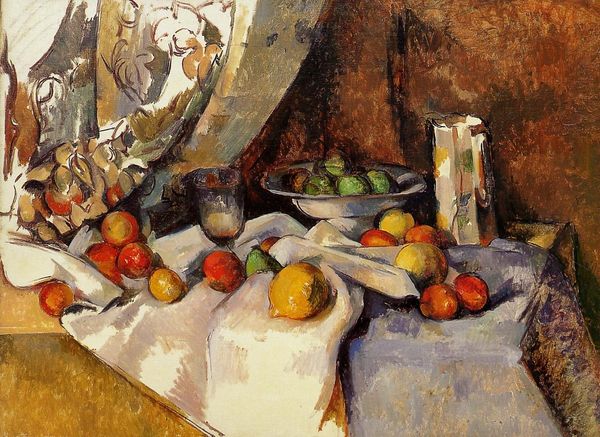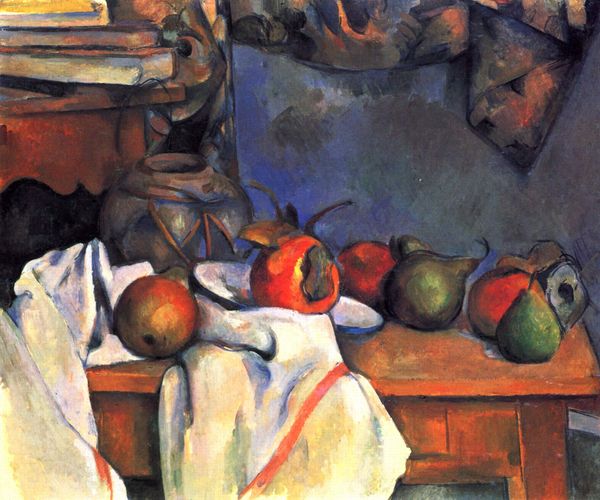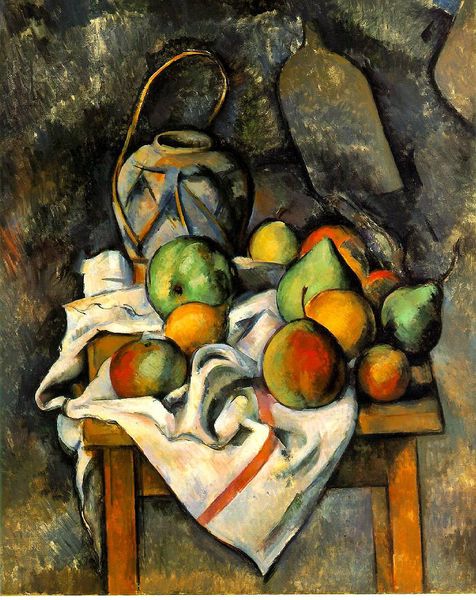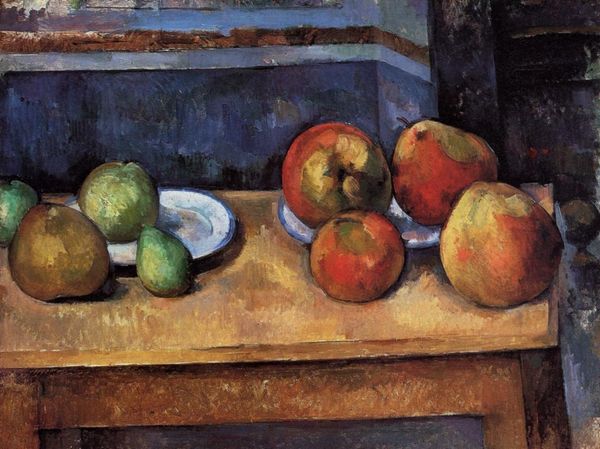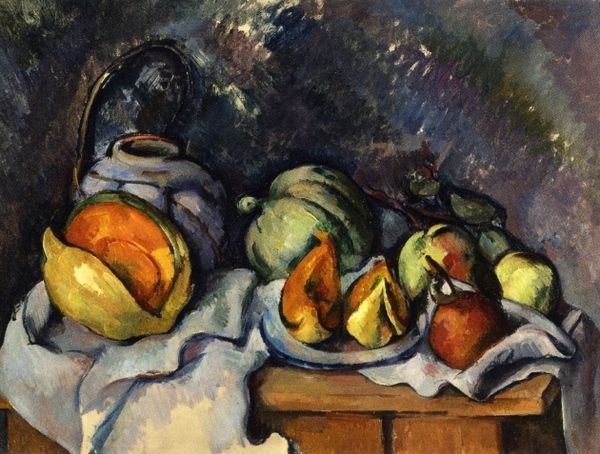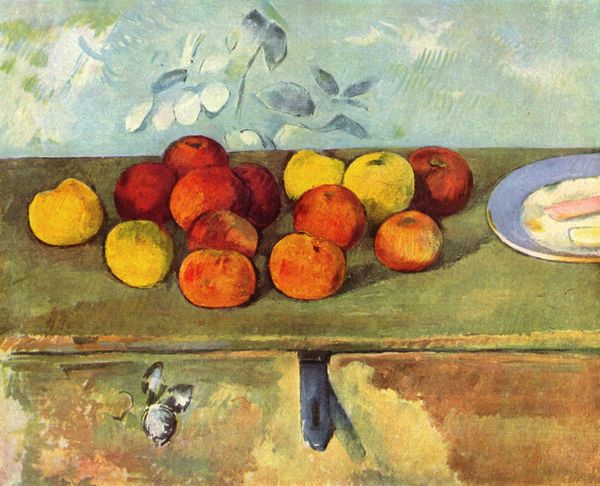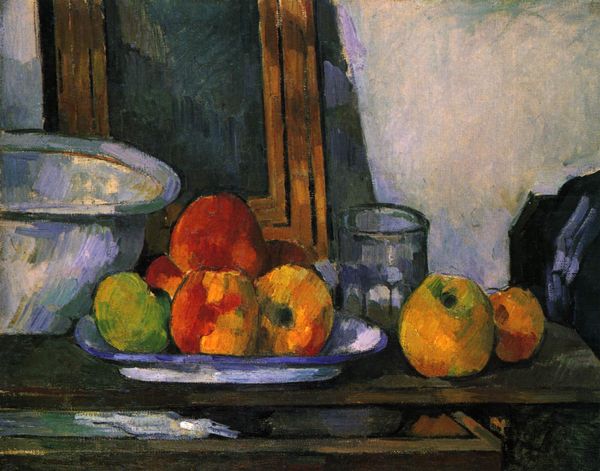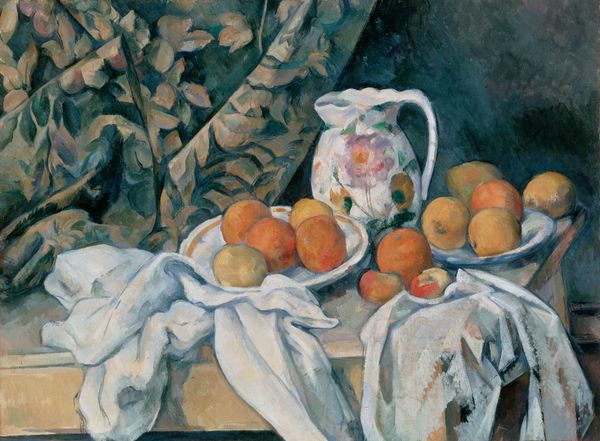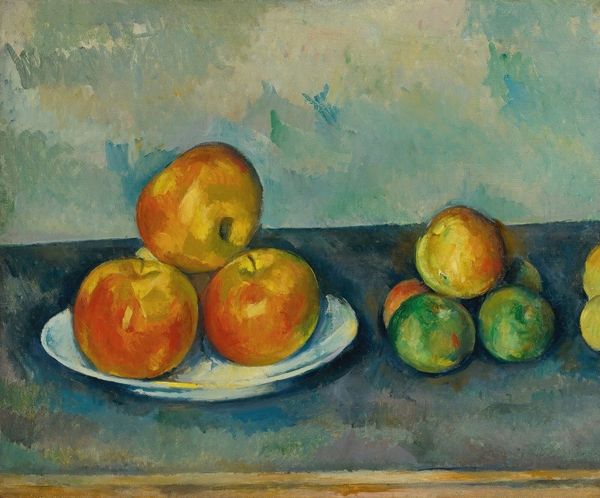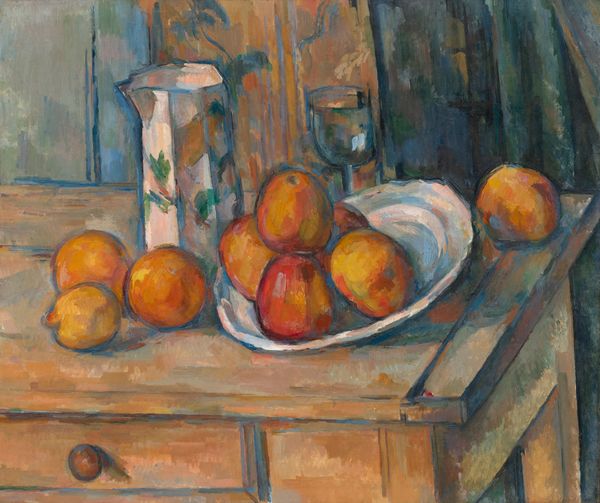
painting, oil-paint
#
food
#
painting
#
oil-paint
#
winter
#
oil painting
#
fruit
#
post-impressionism
#
modernism
Copyright: Public domain
Editor: We’re looking at Paul Cézanne's "Fruit Bowl, Pitcher and Fruit" from 1894, an oil painting residing at the Barnes Foundation. I’m struck by its rather domestic mood, yet the perspective feels slightly off. What social narratives do you think Cézanne is engaging with here? Curator: I think it’s key to understand that Cézanne was painting during a time of massive societal upheaval. What appears as a simple still life is in fact challenging academic traditions and bourgeois sensibilities. The distorted perspective and the flattened picture plane serve to disrupt the illusion of reality, mirroring the destabilization of social norms happening at the time. Consider, for example, how traditional art reinforced established power structures. Cézanne's modernism turns its back on that tradition. How does that challenge the traditional perception of domestic space, traditionally associated with the feminine? Editor: So, the skewed perspective and rejection of realism aren't just aesthetic choices, but almost a form of rebellion? Curator: Precisely. The lack of depth can be seen as a feminist gesture, flattening out traditional hierarchies. The objects, mundane as they seem, lose their fixed meanings; their identities destabilize in this pictorial space. Consider what it means to portray domestic objects like fruit and pitchers in such a way during this era. How does this portrayal speak to class? To consumption? Editor: It reframes how we think about the everyday, challenging the viewer to question the systems at play. Curator: Absolutely! And what I appreciate is how it makes us reconsider the assumed naturalness of traditional representation. We begin to see its construction and thereby, potentially, its biases. I think seeing it this way really encourages a modern re-examination. Editor: I see it now! Thank you; that offers such a different understanding! Curator: My pleasure! I'm always interested in viewing these art pieces in the most honest way possible, not accepting conventions at face value.
Comments
No comments
Be the first to comment and join the conversation on the ultimate creative platform.
